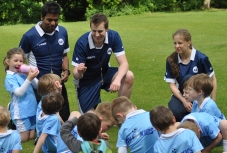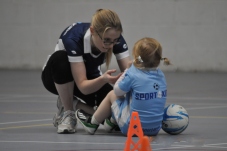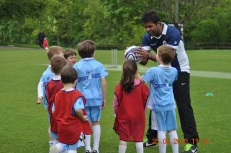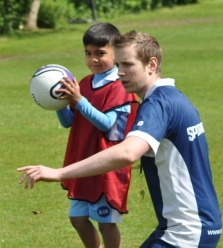 “The Secret Life of Love and Sex: making relationships work and what if they don’t” is the latest book by therapist and author Terence Watts. Terence Watts is a fellow of the Royal Society of Medicine, Freeman of the City of London, and therapist. He is the only psychotherapist worldwide to have been awarded the MCGI by the City & Guilds Institute of London, UK. He lives in Essex, UK.
“The Secret Life of Love and Sex: making relationships work and what if they don’t” is the latest book by therapist and author Terence Watts. Terence Watts is a fellow of the Royal Society of Medicine, Freeman of the City of London, and therapist. He is the only psychotherapist worldwide to have been awarded the MCGI by the City & Guilds Institute of London, UK. He lives in Essex, UK.
Essentially, it’s a book about relationships and how different personality types will experience different relationships and relationship problems. It’s a fascinating insight into yourself and others you have had relationships with in the past (as well as your current partner) because you learn how to identify your dominant personality type and learn why you behave the way you do. Based on Terence Watt’s evolutionary theory of personality types, Warriors, Settlers & Nomads, this book delves into various issues such as why relationships can go wrong, how you can put things right and how to handle break ups.
Let’s talk about sex! We don’t always like to admit what our sex lives are like, if there are problems, or why you had great sex with a bad ex, or not so great sex with the partner of your dreams. This book delves into the depths of relationships to help you figure it all out and gain a better understanding of yourself.
Terence is widely regarded as an expert in the field of relationships because of his vast experience within the therapy world as a therapist, teacher, author and mentor to many therapists across the world. The plus side of this book is that you will learn a lot from it. The downside is that it is a little wordy, but hang in there and read it to the end. There is a reason it is wordy and that it because it is full of positive suggestion for you throughout the book so that you get the most from your read,
“Kevin Hogan, Author of The 168 Hour Week, & The New Hypnotherapy Handbook – The Secret Life of Love and Sex blows open the doors to the real secrets of successful relationships. From the opening pages you think, “that’s me!” and then you are given the solution. Destined to become a classic, Terence Watts takes you where few dare to tread…” – taken from Amazon.co.uk
This book is 249 pages jam packed with eighteen chapters that cover the whole of relationships including arguments, love, and why secrets and lies are sometimes beneficial. If you are the sort of person who has had a bad break up, keeps having relationships that go wrong or can’t seem to get a relationship off the ground then this book is for you!
 I spoke to Terence about his book and here is what we discussed:
I spoke to Terence about his book and here is what we discussed:
In 1997 – the end result was ‘Warriors, Settlers & Nomads’ published in 2000 and still in print. I like giving people the chance to discover ‘stuff’ about themselves and maybe make some changes that they might otherwise not know were possible.
‘The Secret Life of Love and Sex’ was written after I realised how much of that ‘WSN’ concept I was using with clients. I realised that a lot of people have problems but really don’t want to go anywhere near a therapist, so I decided to create the next best thing.
Yes, definitely. People can be highly compatible in one of those and highly INcompatible in the other. The highly sexually compatible couple will often stay together even though they have a personalty clash… And it’s only when the sex ‘wears off’ that they might realise they don’t even like each other.
Anybody who has any problem associated with relationships! It helps people to make, break, mend, and nurture…
Yes, a few… Chemistry can override the personality ‘thing’. I think I do mention that in the book somewhere… It’s a disaster when the chemistry happens with somebody with whom it really shouldn’t. It will often drag people away from a good relationship, only to founder when the sex ‘wears out’.
It started out in life as a brief talk for therapists… And then just grew and grew. By the time I realised I had a book, I was really ‘into’ the concept and wrote it very quickly. I think my excitement at the WSN process shows in that first book!
I think it competes extremely well! The only difference in purpose is that WSN is mostly ‘domestic’ whereas science-based (like Myers-Briggs) are more complex and targeted towards industry and employment. A few employers have used WSN instead though, to good effect…
Thats a tough question, which really needs an entire book to answer, since there are many relationships that look as if they won’t work and yet survive, and other that appears to be ‘made in Heaven’ that don’t last five minutes! I think liking each other has a huge amount to do with success in a relationship. My wife and I an hurl insults at each other but we each now that’s only meant during and in relation to the argument. Not anywhere else. We have a bond of trust that allows us to be relaxed and not ever have to ‘tread carefully’. If I could bottle that and sell it, I’d be rich!
It’s the mortar that keeps the blocks of the relationship together (but it sometimes keeps them apart!)
I haven’t got any at the moment, though I’ve just had ‘Smashing Depression’ published. I don’t usually try to think of what to write – I let it come to me. The next thing will probably be a self-help volume based on my latest therapy creation, BWRT… But is quite a long way off yet, I think. |
If you’d like to read more and order the book, you can order it from Amazon here
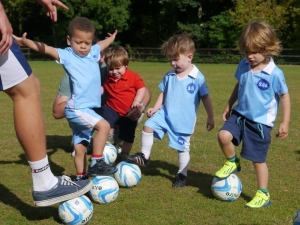
 Lose yourself in the class – celebrate not only your toddler’s first forward roll, but also the time that the coach asked them to sit down with the other children and they did! Each of these little learnings benefit their social and cognitive skills. Reinforcing these behaviours and praising children for them means that they will be more likely to repeat them…meaning that they settle far faster into their new activity.
Lose yourself in the class – celebrate not only your toddler’s first forward roll, but also the time that the coach asked them to sit down with the other children and they did! Each of these little learnings benefit their social and cognitive skills. Reinforcing these behaviours and praising children for them means that they will be more likely to repeat them…meaning that they settle far faster into their new activity.


